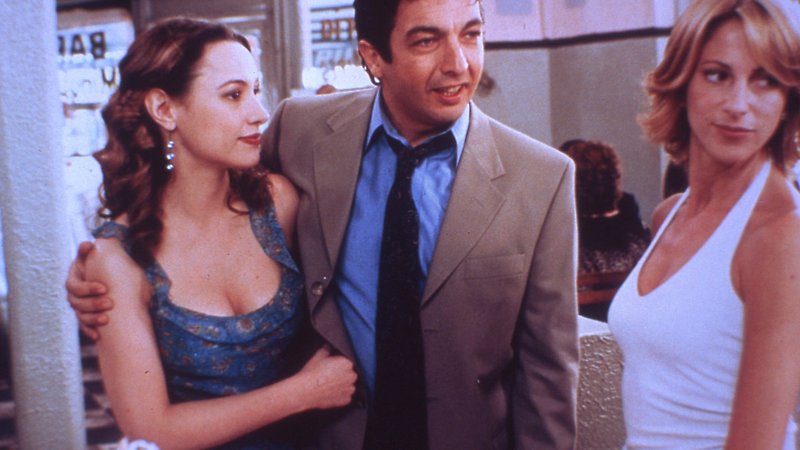
Screened as part of NZIFF 2002
The Son of the Bride 2001
El hijo de la novia
"Argentinean director Juan José Campanella’s Son of the Bride is about a lot of things, but at its core it’s about a man’s midlife crisis. A witty script, a fleet camera and a pitch-perfect cast keep the movie from being dragged under by the selfishness of its central character. Rafael has problems that a lot of people would like to have. He owns a popular restaurant, lives in a drop-dead modernist apartment and sleeps with a beautiful young girlfriend. You want to know what the hell he’s complaining about.
Campanella has answers. For starters, Rafael’s mother has Alzheimer’s. She went into a hospital before he ever got the chance to redeem himself for disappointing her. His father, who started the family restaurant, has since retired. Now his only desire is to remarry his wife in the Catholic Church, a gesture she probably won’t even understand. Rafael’s girlfriend Nati is ready for a commitment – something he hasn’t been able to muster since he broke up with his wife (who now has her own lunky boyfriend). And to stir all of this, Juan Carlos, a childhood friend, has reappeared and jumped right into Rafael’s life.
Up to this point, Rafael’s problem hasn’t been that he can’t act responsibly or make decisions, but rather that he makes the wrong decisions and runs with them way too long. It’s a condition that, not coincidentally, also pretty much sums up contemporary Argentina, which tried to swallow the global economy’s neoliberal medicine and almost poisoned itself. As Rafael pithily puts it: ‘This crisis? It’s always a crisis.’
One of the best things about the film is that it lives in Buenos Aires… Here, in a country that tried to solve corruption with multinational privatization, a corporate chain wants to buy the family restaurant and a cop is still willing to take a bribe…
As Son of the Bride heads toward its sweet, sentimental resolution, Campanella makes sure to undercut the sap. ‘Where will we go on our honeymoon?’ the old man lovingly asks his wife. ‘To hell,’ she responds. By the end, this crisply agreeable picture has made several points. One, I suppose, is that there are different levels of reconciliation, in troubled families and beleaguered businesses as well as in nations beset by permanent crisis. A more important one, perhaps, is that there’s a difference between dropping out and running away." — Jeff Stark, salon.com